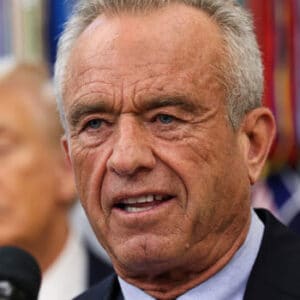Elon Musk has formally resigned from his position as a Special Government Employee in the Trump administration, a decision that has caused a stir in the business and political communities.
On May 29, 2025, he announced his resignation, ending a short but memorable 130-day tenure as the head of the Department of Government Efficiency (DOGE).
A Purpose to Simplify Government
A component of President Trump’s plan to restructure federal operations was Musk’s appointment to DOGE. Musk was entrusted with cutting government waste, expediting bureaucracy, and putting cost-cutting measures into place alongside businessman Vivek Ramaswamy. Mass layoffs, the elimination of diversity, equity, and inclusion (DEI) initiatives, and large budget cuts to the Department of Education were all part of their ambitious agenda.
Musk had envisioned DOGE as a transformative force, with the goal of completely closing the department by July 4, 2026, to coincide with the U.S. Independence Day holiday. Internal opposition and political complexities, however, quickly called into question this vision.
The Tipping Point: A “Beautiful, Big Bill”
Musk’s opposition to President Trump’s most recent fiscal policy, known as the “big, beautiful bill,” served as the impetus for his early departure. The “Golden Dome” missile defense system, significant tax cuts, and enormous increases in defense spending were all included in this spending bill. Musk and other critics claimed that the bill would directly conflict with DOGE’s goal of fiscal restraint by allowing the government to spend up to $600 billion in the upcoming fiscal year.
Musk voiced his dissatisfaction in a May 27 CBS preview clip:
“The enormous spending bill disappointed me; to be honest, it exacerbates the budget deficit rather than reduces it and undercuts the efforts of the DOGE team.”
He added a joke,
“I believe that a bill can be large or exquisite. However, I’m not sure if it can be both.
The White House started the offboarding process earlier than planned after these comments.
Musk’s Last Words
Musk announced his resignation on his social media site X, writing:
“As my appointed term as a Special Government Employee draws to a close, I want to express my gratitude to President @realDonaldTrump for the chance to cut unnecessary spending. As it permeates every aspect of government, the @DOGE mission will only get stronger.
Despite not making a direct statement, President Trump shared a mysterious meme on Truth Social that showed him strolling by himself down a pitch-black street and read, “He’s on a mission from God & nothing can stop what is coming.”
A Battle of the Titans
Both cooperation and conflict characterized Musk’s time in the Trump administration. Although they initially agreed to reduce government inefficiencies, they eventually parted ways due to fundamental differences in governance philosophy and fiscal policy.
Musk’s exit highlights how difficult it is to implement swift governmental change and how difficult it is to match public-sector operations with private-sector efficiency models.
Gazing Ahead
Musk is anticipated to return to his business endeavors, such as SpaceX and Tesla, now that his political career is over. His brief stint in government service demonstrates his willingness to participate in public policy, even though he acknowledges that systemic change is frequently a drawn-out and controversial process.
It is unclear what effect Musk’s initiatives will have and where federal efficiency efforts will go in the future as the Department of Government Efficiency continues under new leadership.





